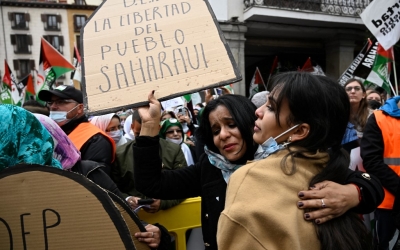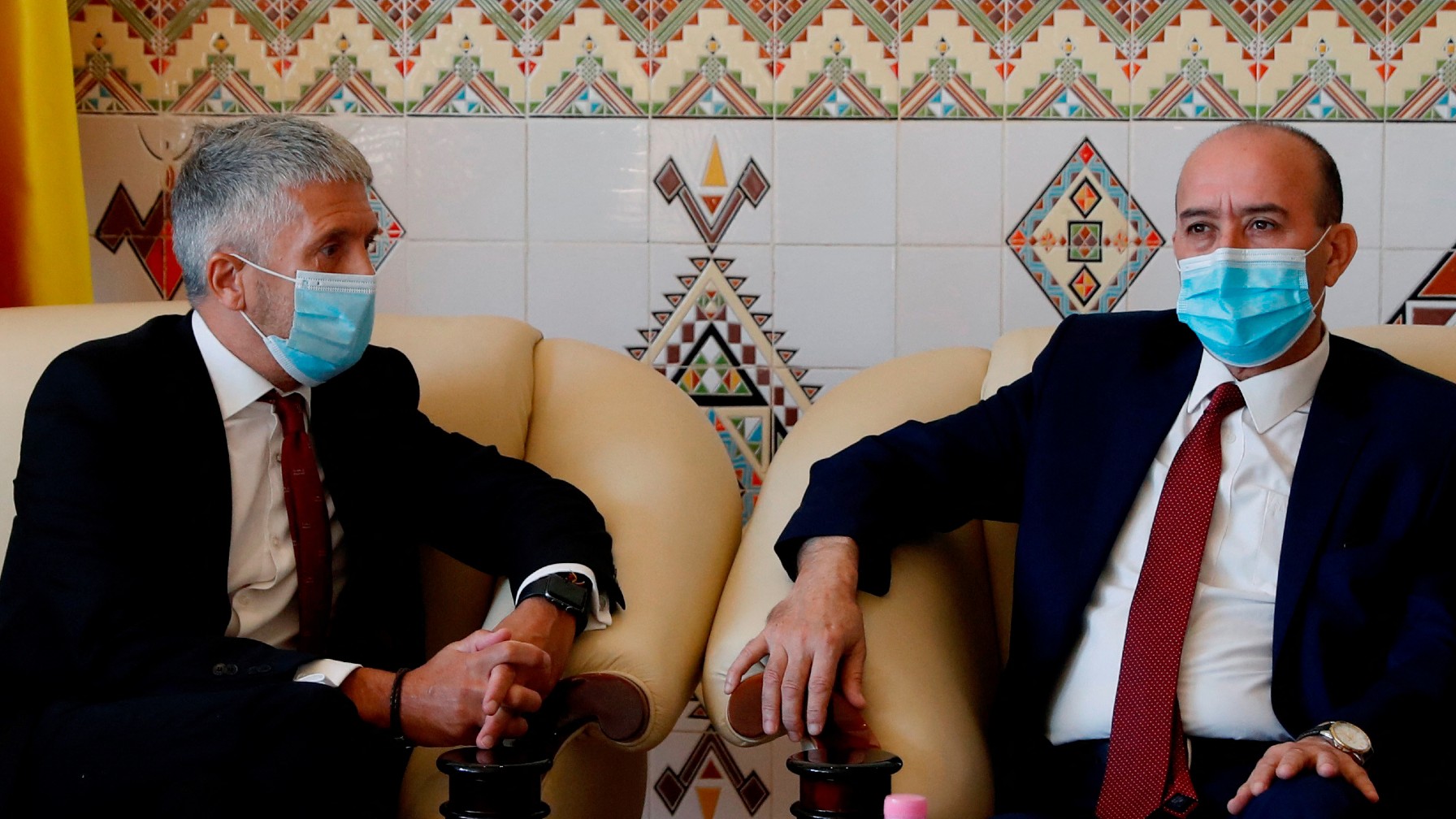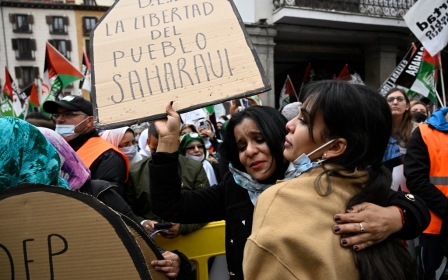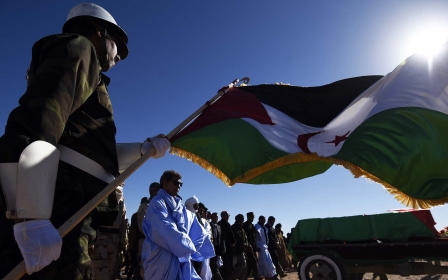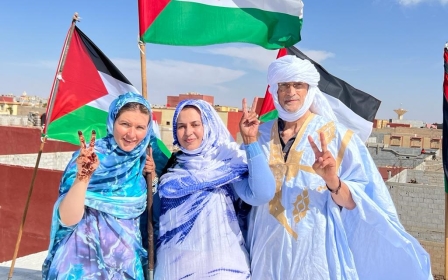Western Sahara: Algeria and Spain’s dangerous row
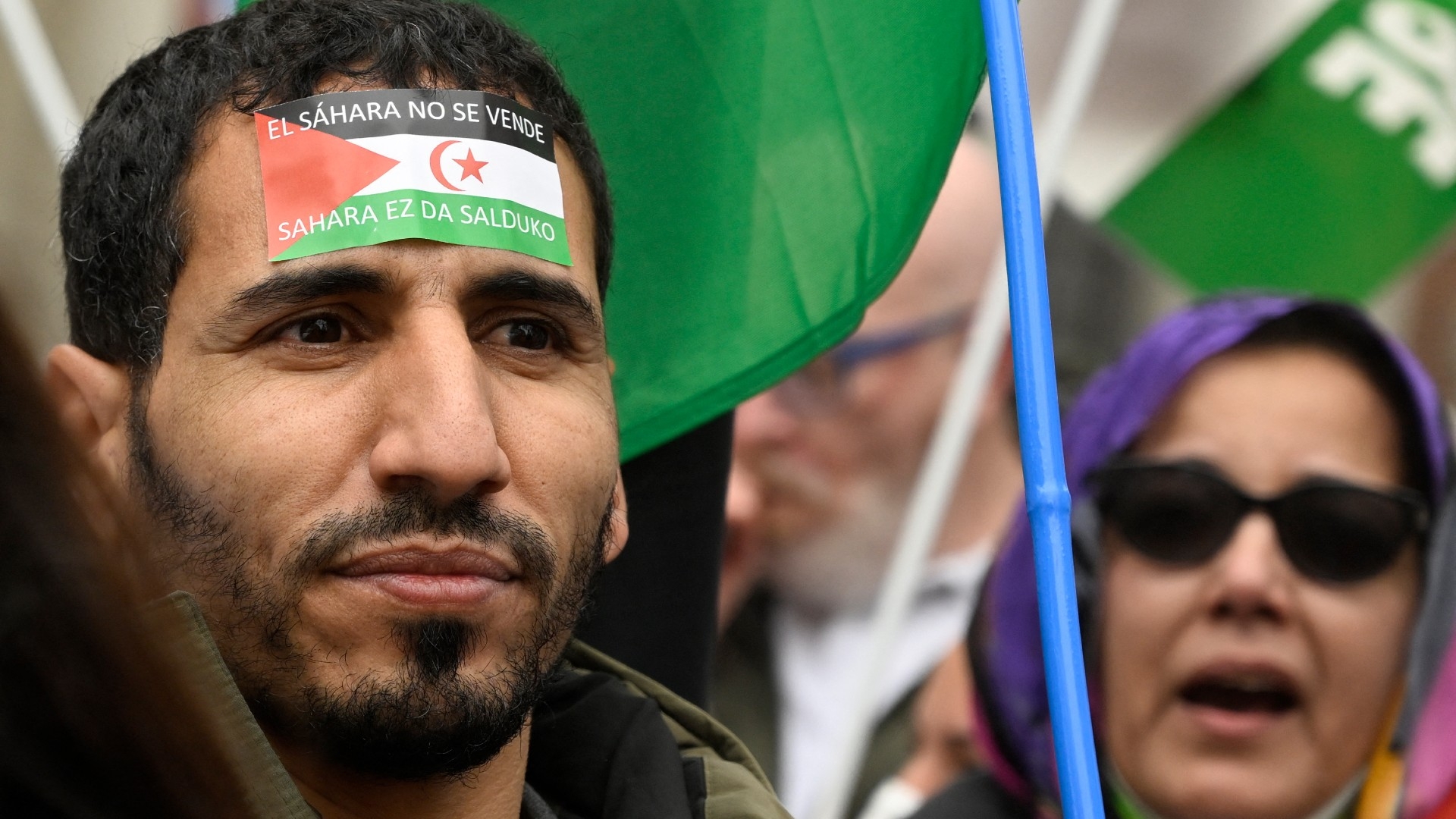
In recent years, more western and Arab governments have moved towards embracing Morocco’s positions and narratives on the Western Sahara conflict.
The EU has two options: It could issue a statement reprimanding Algeria or express a high level of solidarity with Spain
This trend infuriates Algeria, the main state sponsor of the Polisario Front. Last March, Spain, Western Sahara’s former colonial ruler, endorsed the 2007 Moroccan autonomy plan, aligning Madrid with Rabat on this dispute.
On 8 June, reports suggested that Algeria had suspended the friendship and cooperation treaty it signed with Spain in 2002, though Algeria later denied this.
Further, reports suggesting that Algeria had gone even further, suspending trade relations with Spain, are also false. Rather, the Algerian state stopped providing foreign exchange facilities to Algerian businesses involved in trading goods with Spain, causing a suspension of almost all imports and exports, except for existing long-term contracts, including Spain’s natural-gas imports.
Stay informed with MEE's newsletters
Sign up to get the latest alerts, insights and analysis, starting with Turkey Unpacked
The move was viewed as intended to punish Spain for abandoning neutrality vis-a-vis Western Sahara, which Algiers said was a "violation of [Madrid’s] legal, moral and political obligations".
Two options
In the wake of the war in Ukraine, Italy and other EU countries began to see Algeria as an energy giant that could help them quickly wean themselves off Russian hydrocarbons. Given that European countries will likely find themselves more dependent on Algerian oil and gas as tensions between the West and Russia remain high, EU members must carefully consider the risks of actions that could upset Algiers amid this current geopolitical environment.
Such circumstances present the EU, which officially maintains its neutrality in Western Sahara’s conflict, with a difficult dilemma, as the 27-member bloc must decide how to respond to this row between Algiers and Madrid.
The EU has two options: it could issue a statement reprimanding Algeria - without going any further - and then wait for tensions to cool. Or the bloc could express a high level of solidarity with Spain and put pressure on Algiers to abandon its pressure tactics on Madrid.
"I suspect that the EU will stick with Spain simply because Algeria has a reputation for being a very reasonable country," Jalel Harchaoui, a researcher specialising in Libya, told Middle East Eye.
European countries view Algeria as a country that traditionally avoids escalating tensions with EU members. "Algeria does not usually play unfairly in such situations. Morocco is more inclined to threaten the Spanish state - and Europe indirectly - with security and migration issues when it does not achieve its objectives,” Leticia Rodriguez, a researcher at Granada University, told MEE.
"So now that the Algerians are expressing their anger, the temptation for the EU bloc is going to consist of being quite tough on Algeria and depicting it as an unreasonable nation because it is expected to behave in a very nice way,” added Harchaoui.
Security concerns
It is worth considering the potential ramifications of this diplomatic row from the standpoint of Algeria-EU security cooperation. Regarding migration flows and monitoring security risks, both Algeria and Morocco exchange critical information with southern European countries.
“Algeria is one of the countries most involved in the fight against terrorism in the Sahel,” explained Rodriguez. “Half of the operations carried out in recent years have been thanks to exchanges of information between European and Algerian intelligence services."
Underscored by the May 2021 Ceuta crisis, which hurt Moroccan-Spanish relations, EU members have never taken Rabat’s cooperation for granted.
According to Harchaoui, Spain's decision to abandon a neutral stance on the Western Sahara is probably due to fears that Morocco would blackmail it when it comes to migrant flows and other issues.
But European countries do not hold similar fears about Algeria. "Algeria doesn’t like using blackmail, using what people in diplomacy call linkage: 'If you don’t give me this, I will stop giving you that.' It’s not in the DNA of Algeria," said Harchaoui.
Even without blackmailing European countries over the Western Sahara issue, Algeria's suspension of its 2002 treaty with Spain is a significant development.
A Russia 'proxy state'
Mindful of worsening geopolitical instability stemming from the Russia-Ukraine war and increased East-West bifurcation, this row has unfolded just as demonisation of African countries deemed "too close to Russia" is growing in the West.
There is a narrative, promoted and exploited by Morocco, to depict Algiers as beholden to the Kremlin by claiming that it is Russia’s ‘proxy state’ in the Maghreb
This extends to Algeria. There is a narrative promoted and exploited by Morocco to depict Algiers as beholden to the Kremlin by claiming that it is a Russian "proxy state" in the Maghreb.
Algeria and Russia do maintain a “special relationship” rooted in the Cold War period. The North African country buys most of its arms from Russia. Moscow has forgiven billions of Algerian debt and during Algeria’s protest movement of 2019, the regime turned to the Kremlin for support.
Also, as tensions have risen between Algeria and Morocco following Rabat’s entry into the Abraham Accords for Israeli-Arab normalisation in 2020, Algeria has viewed its cooperation with Moscow as critical to countering Morocco’s geopolitical position in the Maghreb.
But Algeria is far from being Russia’s "proxy state": this is underscored by Algiers’ refusal to permit the Russians to establish a naval base in the country, as well as the deepening of Algeria’s economic and energy relations with Russia’s European adversaries.
In early March, Algeria - unlike Syria - did not vote against the US-drafted UN General Assembly resolution condemning Russia’s aggression in Ukraine. Instead it was the only Arab state to abstain. Furthermore, in Libya’s 2014-2021 civil war, Algeria did not align with Russia’s pro-Haftar position.
Yet such nuance gets lost on western audiences amid much of the discourse on Algerian-Russian relations.
No mediator
“There’s no army of journalists, propagandists, social media trolls, or consulting firms in Washington defending Algeria’s image," Harchaoui said. Algeria lacks the lobbies and soft-power outreach countries like Israel, Morocco, and the UAE are better known for, he added.
The conflict in Western Sahara currently lacks a mediator, which is dangerous. For decades, US support for Morocco threatened its claims to being a neutral peace broker.
This was ultimately made clear in December 2020 when the Trump administration adopted Rabat’s position and recognised Morocco’s sovereignty over Western Sahara. Today, the Biden administration seems to have every intention of maintaining this position.
Spain abandoned its neutrality in March. France, Turkey, and other Nato members cannot serve as neutral states given their pro-Rabat positions. With the Ukrainian crisis greatly weakening the UN’s credibility, the organisation is not positioned to help ease the crisis in Western Sahara.
As Harchaoui said: "This crisis is probably going to get worse before it gets better."
The views expressed in this article belong to the author and do not necessarily reflect the editorial policy of Middle East Eye.
This article is available in French on Middle East Eye French edition.
Middle East Eye delivers independent and unrivalled coverage and analysis of the Middle East, North Africa and beyond. To learn more about republishing this content and the associated fees, please fill out this form. More about MEE can be found here.



